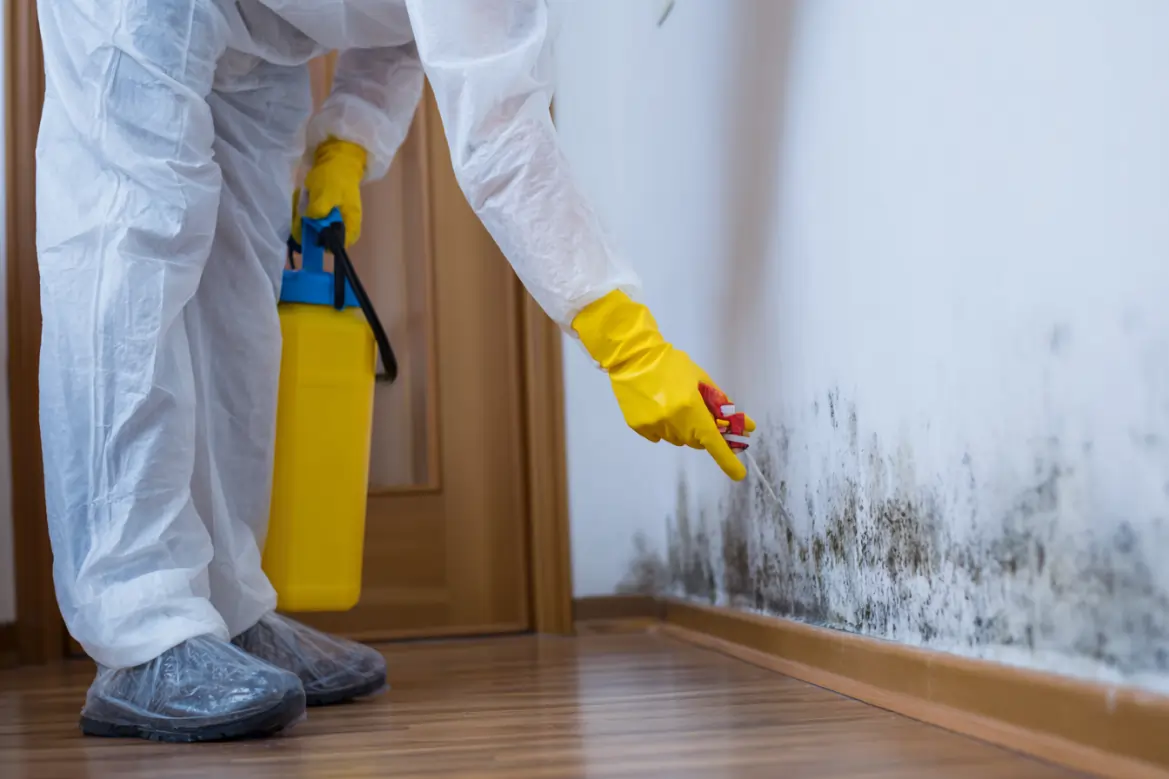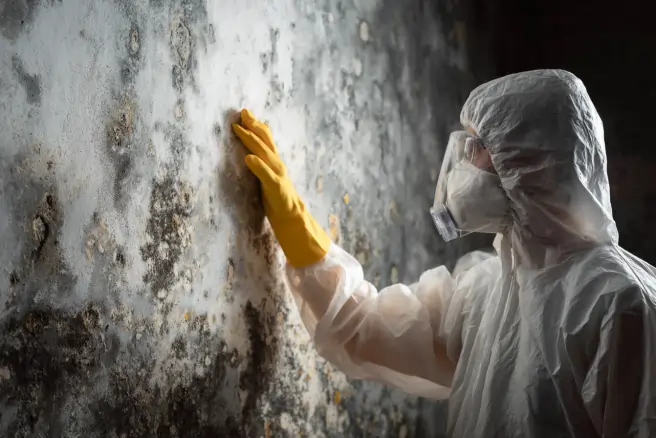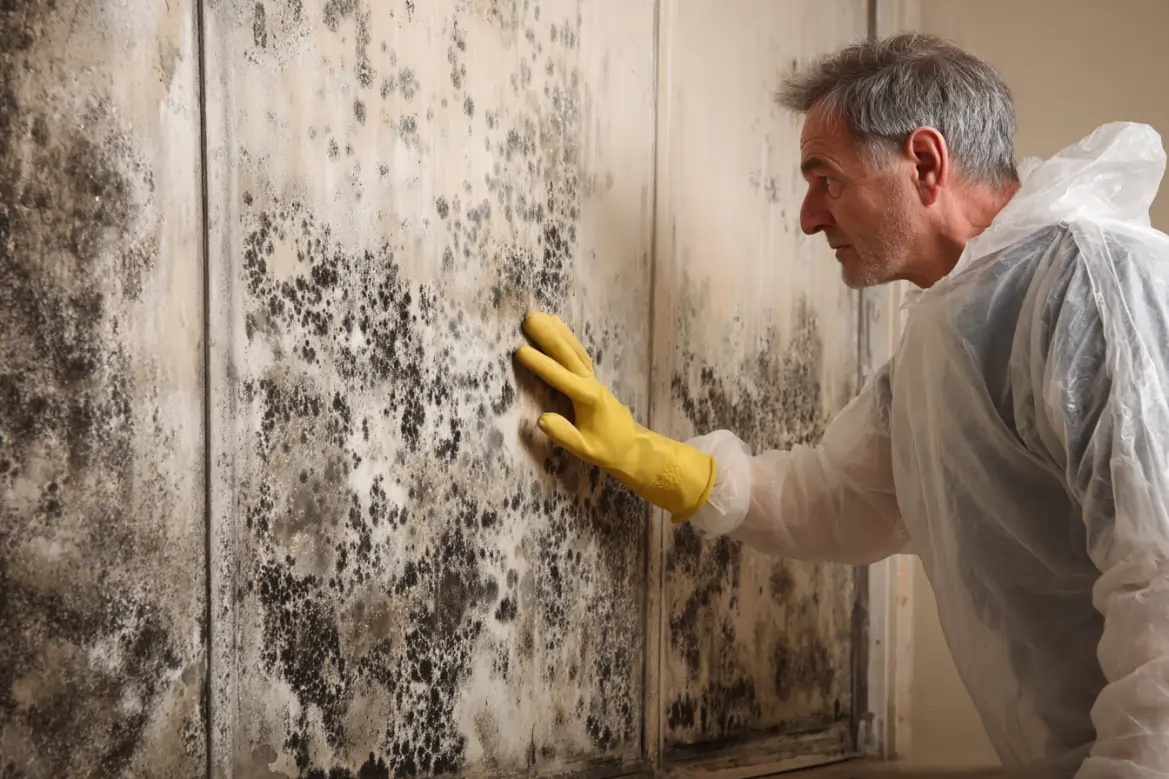 Mold is more than just an eyesore—it can damage your home and negatively affect your health. In Titusville, Florida, where humidity stays high year-round and hurricanes bring heavy rainfall, mold growth is a common problem. Whether it starts as a musty odor in the bathroom or spreads after a major storm, once mold takes hold, the safest solution is professional remediation.
Mold is more than just an eyesore—it can damage your home and negatively affect your health. In Titusville, Florida, where humidity stays high year-round and hurricanes bring heavy rainfall, mold growth is a common problem. Whether it starts as a musty odor in the bathroom or spreads after a major storm, once mold takes hold, the safest solution is professional remediation.
But with so many companies advertising mold services across Brevard County, how do you know which one to trust? Choosing the right mold remediation company in Titusville can make the difference between solving the problem for good and facing recurring infestations. This guide will walk you through what to look for, what to avoid, and how to make sure you’re hiring a qualified professional who understands the unique challenges of Florida homes.
Why Hiring the Right Company Matters
Mold remediation isn’t just about cleaning visible mold. A thorough job involves:
-
Finding and fixing the moisture source
-
Safely containing and removing contaminated materials
-
Filtering spores from the air
-
Preventing regrowth through repairs and treatments
An unqualified company might only wipe away surface mold or use harsh chemicals that don’t address the root cause. The result? Mold returns within weeks, costing you more time, money, and stress. For Titusville homeowners, where humidity and storms create constant risks, hiring the right company ensures long-term protection.
Florida’s Licensing Requirements
Unlike some states, Florida has specific regulations for mold professionals. According to state law:
-
Mold assessors inspect and test for mold, determining the extent of contamination.
-
Mold remediators perform the actual cleanup and removal.
-
Both must be licensed by the Florida Department of Business and Professional Regulation (DBPR).
Before hiring a reputable mold removal company, always verify their license status. You can check this online through the DBPR’s license search tool. If a company cannot provide proof of licensing, it’s a red flag.
Key Qualities to Look for in a Mold Remediation Company
When comparing companies in Titusville, pay attention to the following factors:
1. Local Experience
Titusville’s humid subtropical climate creates unique challenges. A company familiar with Brevard County homes will know common problem areas, such as crawl spaces, attics, and storm-damaged roofs. Local experience also means faster response times during hurricane season.
2. Comprehensive Services
Look for a company that offers:
-
Mold inspection and testing
-
Water damage restoration
-
Air quality testing
-
Preventative treatments
A full-service company can handle every step of the process, saving you from juggling multiple contractors.
3. Proper Equipment
Professional remediation requires specialized tools:
-
HEPA vacuums and air scrubbers to filter spores
-
Containment barriers to prevent cross-contamination
-
Moisture meters to detect hidden leaks
If a company only uses bleach and rags, they’re not equipped for true remediation.
4. Transparent Estimates
Reputable companies provide clear, written estimates detailing what services will be performed, how long it will take, and what it will cost. Be wary of vague quotes or unusually low prices.
5. Insurance and Certifications
In addition to Florida licensing, check for:
-
Liability insurance and workers’ compensation coverage
-
Certifications from organizations like the Institute of Inspection, Cleaning and Restoration Certification (IICRC)
These credentials show the company follows industry standards.
Questions Titusville Homeowners Should Ask Before Hiring
When interviewing potential mold remediation companies, ask these important questions:
-
Are you licensed by the State of Florida for mold remediation?
-
Do you also handle water damage restoration? (Since storms often cause both problems.)
-
Can you provide references from other Titusville homeowners?
-
What containment methods do you use to prevent spores from spreading?
-
Do you offer a written warranty on your work?
-
How quickly can you respond after a storm or flooding event?
The answers will help you identify reliable companies versus those cutting corners.
Warning Signs of a Poor-Quality Contractor
Unfortunately, some companies in Florida take advantage of homeowners after storms. Watch out for these red flags:
-
No license or insurance – This is non-negotiable.
-
High-pressure sales tactics – Reputable companies don’t scare you into signing on the spot.
-
Cash-only deals – Professional businesses accept multiple payment methods.
-
Unrealistically low quotes – If it sounds too good to be true, it probably is.
-
No containment during work – If workers aren’t using protective barriers, spores may spread throughout your home.
Benefits of Choosing a Local Titusville Company
While national chains operate across Florida, there are advantages to hiring a local Titusville-based remediation company:
-
Faster Emergency Response – When a hurricane hits, local crews can arrive quickly, reducing damage.
-
Knowledge of Local Building Codes – Brevard County regulations may differ from other parts of Florida.
-
Community Reputation – Local businesses rely on word-of-mouth, so they’re more likely to deliver quality service.
-
Understanding of Climate Challenges – From summer thunderstorms to salt air corrosion, local pros know what Titusville homes face.
What to Expect During the Remediation Process
Knowing the process helps you spot whether a company is doing the job correctly. A professional mold remediation project usually involves:
-
Inspection and Assessment – Identifying mold type, location, and moisture source.
-
Containment – Setting up plastic barriers and negative air pressure to prevent spore spread.
-
Air Filtration – Running HEPA filters to capture airborne spores.
-
Mold Removal – Removing contaminated materials like drywall and carpeting.
-
Cleaning and Sanitizing – Using professional-grade solutions to clean surfaces.
-
Restoration – Repairing or replacing building materials damaged by mold.
If a company skips steps, the remediation may not be effective.
Cost Considerations
Mold remediation costs vary depending on the size of the infestation and the extent of damage. In Titusville, small jobs may cost a few hundred dollars, while major post-hurricane projects can run into the thousands.
What matters most is value—not just price. Paying a bit more for a licensed, experienced company saves money long-term by preventing recurring mold problems.
Case Example: Post-Hurricane Mold in Titusville
After Hurricane Ian, many Titusville homeowners discovered mold within days of water intrusion. One family in the Indian River area noticed a musty smell and dark patches spreading on their walls. They contacted the licensed local company, Titusville Mold Removal (https://titusvillemoldremoval.org), which quickly set up containment, removed affected drywall, and restored the home within a week.
Because the homeowners acted fast and chose a qualified company, they avoided long-term health issues and higher repair costs. Their story highlights the importance of choosing wisely when mold threatens your home.
Final Thoughts
For Titusville homeowners, mold isn’t just a possibility—it’s a near certainty at some point. High humidity, frequent storms, and the realities of Florida living make mold an ongoing concern. But with the right mold remediation company, you can protect your home and your family’s health.
The key is doing your homework: verify licenses, ask the right questions, and avoid red flags. By choosing a trusted local professional, you’ll gain peace of mind knowing that your mold problem is handled thoroughly and safely.
Living in Titusville means facing mold challenges head-on—but with the right help, your home can stay clean, safe, and mold-free.
 Life in Titusville, Florida, comes with many perks—proximity to the coast, views of rocket launches, and warm weather nearly all year. But along with the benefits of coastal living comes a major challenge: hurricane season. From June through November, residents of Titusville and the wider Brevard County area must prepare for strong storms, heavy rain, and the flooding that follows.
Life in Titusville, Florida, comes with many perks—proximity to the coast, views of rocket launches, and warm weather nearly all year. But along with the benefits of coastal living comes a major challenge: hurricane season. From June through November, residents of Titusville and the wider Brevard County area must prepare for strong storms, heavy rain, and the flooding that follows.
 If you live in Titusville, Florida, you’ve probably noticed how quickly moisture builds up in your home. Whether it’s condensation on your windows, a damp smell in the air, or visible mold spots creeping into the corners of your bathroom, the warm, humid environment of coastal Central Florida creates the perfect breeding ground for mold. For homeowners in Titusville, mold isn’t just a nuisance—it’s a recurring battle. Understanding why the local climate fuels mold growth and what you can do to protect your home is essential for maintaining a safe, healthy living space.
If you live in Titusville, Florida, you’ve probably noticed how quickly moisture builds up in your home. Whether it’s condensation on your windows, a damp smell in the air, or visible mold spots creeping into the corners of your bathroom, the warm, humid environment of coastal Central Florida creates the perfect breeding ground for mold. For homeowners in Titusville, mold isn’t just a nuisance—it’s a recurring battle. Understanding why the local climate fuels mold growth and what you can do to protect your home is essential for maintaining a safe, healthy living space. We’re excited to welcome you to the new SwingTheDoc.com! While our name may sound playful, our mission is serious: providing reliable, practical information about mold removal, prevention, and remediation in Titusville, FL.
We’re excited to welcome you to the new SwingTheDoc.com! While our name may sound playful, our mission is serious: providing reliable, practical information about mold removal, prevention, and remediation in Titusville, FL.